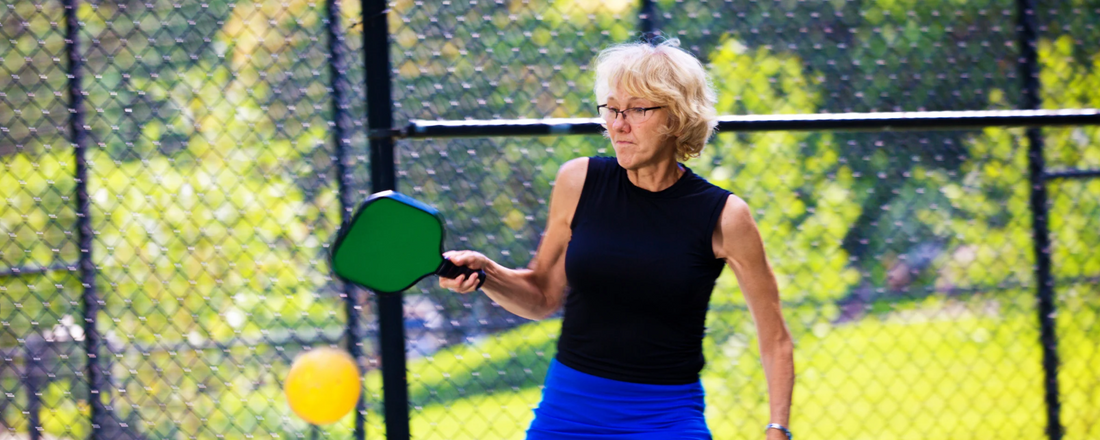
Pickleball and Longevity: What the Research Says About Staying Active Into Your 80s
Share
Pickleball is more than a fun pastime or a recreational craze—it is a lifestyle sport with remarkable implications for health and longevity. As life expectancy rises, maintaining vitality into later decades has become a central focus of modern wellness. Research suggests that pickleball’s unique combination of physical, cognitive, and social benefits makes it one of the best activities for promoting healthy aging, even well into the 80s.
Physical Benefits: Movement That Sustains the Body
Pickleball provides a rare balance between intensity and accessibility. The sport delivers cardiovascular conditioning and muscle engagement without the excessive strain often associated with higher-impact sports.
- Joint-Friendly Exercise: Unlike running or tennis, pickleball’s smaller court size and underhand serves place less stress on knees, hips, and shoulders.
- Balance and Coordination: Regular play enhances stability and proprioception, reducing the risk of falls, which is one of the leading health concerns for older adults.
- Functional Strength: Repeated lunges, quick pivots, and paddle control support everyday mobility and independence.
Scientific findings consistently link moderate physical activity with reduced risk of chronic diseases such as diabetes, cardiovascular illness, and osteoporosis—all areas where pickleball fits naturally as a protective activity.
Cognitive Health: Sharpening the Mind
Pickleball’s rapid exchanges and strategic demands stimulate cognitive pathways that support mental sharpness.
- Decision-Making: Choosing between dinks, drives, and drops requires constant assessment of evolving situations.
- Reaction Time: Fast volleys keep neural connections active, reinforcing processing speed.
- Memory and Learning: Mastering strategies and remembering score sequences challenge working memory and executive function.
Emerging research in neuroplasticity indicates that engaging in complex, enjoyable activities like pickleball may delay age-related cognitive decline, making it not just exercise for the body but also a workout for the brain.
Social Connection: The Longevity Multiplier
Beyond the physiological effects, social connection is perhaps the most powerful contributor to longevity. Studies on aging populations consistently show that strong community ties reduce mortality rates and improve overall quality of life.
- Community Belonging: Pickleball courts are often bustling with multigenerational players, fostering inclusion and camaraderie.
- Stress Reduction: Social laughter and lighthearted competition help lower cortisol levels, enhancing immune function and emotional well-being.
- Routine Engagement: Scheduled play groups provide structure and motivation, encouraging consistency in physical activity.
For older adults, this sense of community often combats isolation and supports mental health as strongly as physical exercise does.
Research on Longevity and Pickleball
While pickleball-specific studies are still emerging, the data on racquet sports and active social games are compelling. A landmark study published in the British Journal of Sports Medicine highlighted racquet sports as some of the most effective activities for extending lifespan. The combination of aerobic exercise, muscle engagement, and social interaction is unmatched in reducing mortality risk.
For players in their 70s and 80s, pickleball offers a blueprint for active living that aligns directly with longevity science: low-impact movement, cognitive stimulation, and community belonging.
Conclusion
Pickleball represents more than recreation—it is a prescription for vitality that bridges physical, mental, and social wellness. By keeping joints mobile, sharpening cognitive function, and nurturing friendships, the sport equips players to live not just longer lives but fuller ones. For those seeking to remain active into their 80s and beyond, pickleball is both a gateway and a guardian of longevity.












